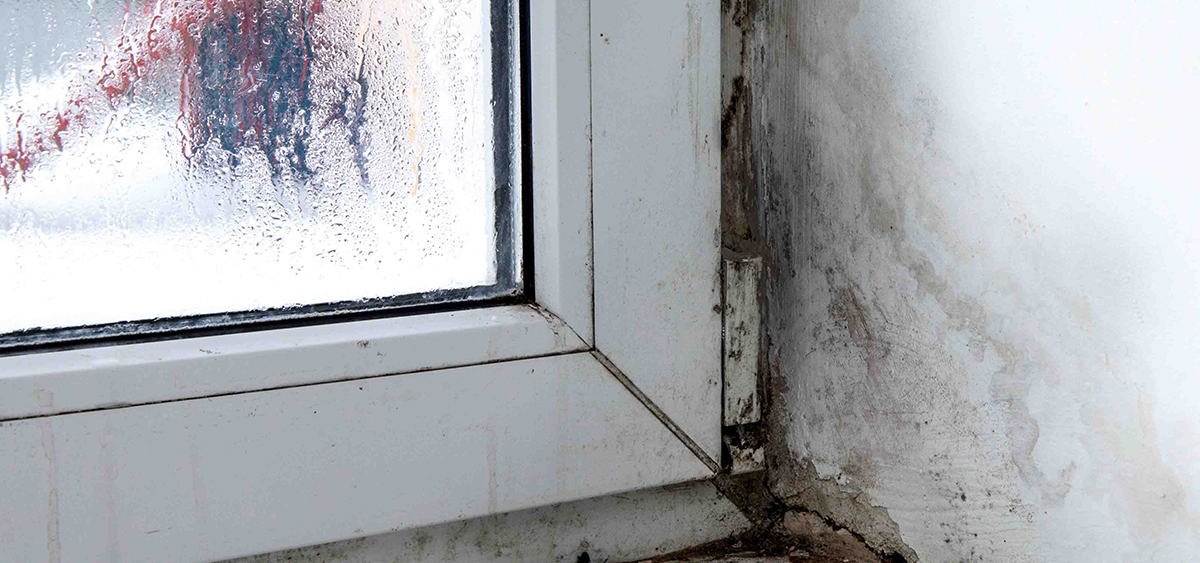Many things can affect the state of an apartment: a sagging ceiling, toxic mold or no running water. As a tenant, you have different recourses available, depending on how serious or urgent the situation is.

By law, when is an apartment unit unfit to live in?
The law considers that a rental unit is unfit to live in when there is a serious risk to the health or safety of the people living there or to the public. For example, the presence of toxic mold or lack of running water could make it unfit to live in.
What can I do if my apartment is unfit to live in?
Before moving in
If the apartment is unfit to live in when you’re supposed to move in, you can refuse to move in. Your lease will then be cancelled. But it would be best to consult the Tribunal administratif du logement (TAL, formerly Régie du logement or rental board) before you do this.
After you’ve moved in
You can leave if it becomes unfit to live in at any time during the lease. You must notify your landlord that you are leaving and give the reason for leaving no later than 10 days after you leave.
Your notice to the landlord must be in writing in the same language as the lease. The notice must include this information:
- landlord’s name and address
- address of the rental unit
- reasons why it is unfit to live in
- date on which you left or plan to leave
- your new address
- your new telephone number
The TAL has a sample notice on its website.
You do not have to pay rent while the apartment is unfit to live in.
|
Note: A landlord who thinks the unit is fit to live in, or that you were responsible for its poor condition, can file a claim against you at the TAL. The landlord might claim that you should have continued to pay the rent, or that you should be held responsible for damage to the apartment |
After leaving the apartment
If you’ve given the landlord your new address before leaving, the landlord must notify you as soon as the apartment becomes fit to live in. You then have ten days to tell the landlord whether you will be returning. If you refuse to return, or don’t answer the notice, the lease will be cancelled and the landlord will be free to rent to another person.
The lease says I agree the apartment is in good condition. What legal effect does this have?
A statement in a lease that a unit is fit to live in is not valid.
The landlord is obliged by law to deliver the unit in good condition and cannot use such a statement against you.
What can I do if my apartment is in poor condition?
Your apartment may be in poor condition without being unfit to live in. You can’t abandon your apartment in this situation, but you have other recourses against a landlord who fails to respect their legal responsibilities concerning maintenance, safety and cleanliness.
If you notice any deterioration that could turn into a problem, you can send the landlord a written notice asking that the necessary repairs be done. This notice can take the form of a “demand letter”. For more information, see our article Demand Letters.
If the landlord fails to respond, you can file a claim with the TAL. You can request the following:
- an order that the landlord do the necessary repairs or maintenance
- authorization for the tenant to have the repairs done at the landlord’s expense
- payment of damages (money)
- a reduction in rent
In some situations, you can also ask the TAL to cancel the lease.
To learn more about making a claim at the rental board, see our article The Tribunal administratif du logement.
What if the repairs are urgent?
If the repairs are urgent, for example, a leak from a pipe that threatens to flood your apartment, or a broken lock on your front door, you must first try to notify the landlord. If you manage to reach them and they refuse to fix the problem right away — or it’s not possible to reach them — you can do the repair yourself, without filing a claim with the TAL. For example, you could hire a plumber to fix the leaking pipe.
You have the right to be reimbursed for reasonable expenses. If the landlord refuses your request for reimbursement, you can deduct these expenses from your rent. You should keep the receipts for the work done as proof of what you paid.
If you are eligible for Legal Aid, you can receive free or low-cost legal services. For more information see: Legal Aid: Do I Qualify?
What are my obligations regarding the condition of my apartment?
As a tenant, you must keep your unit clean and use it in a reasonable way.
For example, unless you have permission from the landlord, you cannot use or keep any extremely flammable or explosive substances. Also, you cannot have too many people living in your unit. The law says that the number of people in a rental unit must allow every person to live in reasonably comfortable conditions.
If your actions make the apartment unsafe or unsanitary, your landlord can file an application with the TAL. The TAL can order you to pay a sum of money (damages) to the landlord or to respect your obligation to properly maintain your apartment. Your landlord can also ask the TAL to cancel the lease if your actions cause the landlord serious harm.







